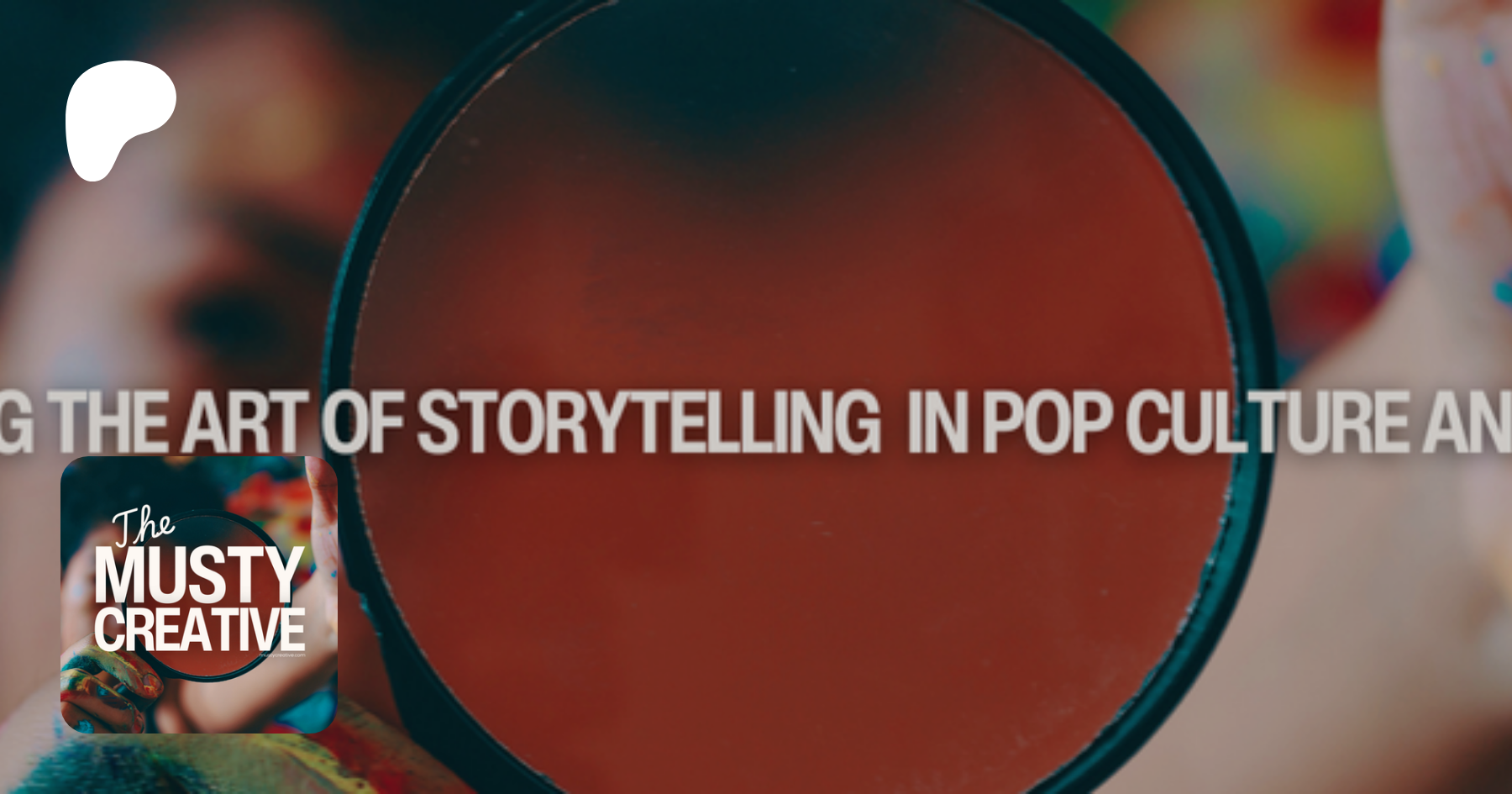- The Musty Creative
- Posts
- How Pixar's Coco Helped Me Heal
How Pixar's Coco Helped Me Heal
When was the last time a movie made you cry?

We’ve all cried during a movie. But what if that flood of emotion isn’t just entertainment?
As the end credits rolled, the cramped, dimly lit theater quickly began to empty itself of its patrons. Mostly children walked by as they excitedly began to discuss their favorite parts of the film while their parents tiredly dragged them toward the lobby, leaving a trail of popcorn and candy on the floor. My husband attempted to follow suit with the rest of the families and head to the lobby (you know, like a normal person), but I wasn’t ready to move. For the last 10 minutes of the film, I had been bitterly sobbing into his right arm, soaking through the sleeve. I couldn’t stop the tears and snot from flowing out of my face, no matter how many tissues my husband handed me from his coat pocket. It felt like my body had entered rigor mortis—frozen in grief—without the decency of letting me die first.
“Are you going to be okay?” my husband worriedly asked. The words, “I don’t know,” somehow managed to clumsily fall out of my salty, swollen mouth as I wiped my eyes with my hands. Out of all the movie-going experiences I had ever been through, I had never felt heartbreak like this before. The film? Disney Pixar's Coco.
Why We Cry at the Movies
For years, therapists all over the world have studied the effects of film on the human mind and have discovered that the stories we watch for entertainment can act as therapy, depending on how emotionally open we are to the content. Some therapists have even formed cinema therapy groups in which patients watch films that coincide with their current struggles and discuss the storylines with others in a safe, supportive environment.
As a facilitator of cinema therapy groups herself, Birgit Wolz, Ph.D., MFT, claims that “cinema therapy can be a powerful catalyst for healing and growth for anybody who is open to learning how movies affect us and to watching certain films with conscious awareness. Cinema therapy allows us to use the effect of imagery, plot, music, etc. in films on our psyche for insight, inspiration, emotional release or relief and natural change.” When we know what our struggles are, we can better pinpoint the types of films we need to watch in order to benefit from this type of exercise.

Gary Solomon, Ph.D., MPH, MSW, the author of The Motion Picture Prescription®: Watch This Movie and Call Me in the Morning and Reel Therapy®: How Movies Inspire You to Overcome Life’s Problems, has been an advocate of storytelling for quite some time. He states that movies “can have a positive effect on most people,” although he does exclude “those suffering from psychotic disorders,” as they require a special kind of treatment. Focusing on stories that portray themes like addiction or abandonment can be of great benefit to those who have personally experienced such trauma.
Lessons in Grief and Letting Go
In 2016, a year before the release of Coco, my grandfather’s odd behavior led to his eventual dementia diagnosis. Several years prior to that, I had lost my other grandfather to the same illness, and several years before that, my grandmother. Three lives slowly, painfully taken by an invisible thief. Their bodies, minds, and memories all lost forever. So, the idea of experiencing another long journey of loss with my newly diagnosed grandfather was too much for me to bear and I did what I do best. I bottled up my emotions and refused to allow myself to feel the pain.
But on that night in 2017, as I watched Miguel sing to Mama Coco on the big screen, I couldn’t help but see the faces of my grandparents. The song “Remember Me” was the anthem of yet another goodbye I had to soon give to my ailing grandfather, and I wasn’t ready for it in the slightest. Years of unexpressed pain flowed endlessly through my tear ducts. So many times in my life, I had never permitted myself to fall apart due to the false idea that I had to stay strong for my family. But Coco gave me that permission.
When fully utilized, films help us to explore parts of ourselves that we have yet to uncover.

In March of 2021, my grandfather passed away. Because of my experience watching Coco, I made the decision to process my feelings. I’ve recognized that staying emotionally present and mourning with my family was where I needed to be all along. It was okay to cry, to show weakness. In fact, expressions of grief allowed for bonding moments which brought us closer together and ultimately helped me say goodbye.
The Power of Storytelling
I believe there is a much deeper reason as to why we love movies and shows the way that we do. When fully utilized, films help us to explore parts of ourselves that we have yet to uncover. They give us the bravery to do things we’ve been too fearful to do, to share who we are with others in a way that grows our relationships, and they give us an outsider’s perspective of our own faults when we become too close-minded to see things clearly.
The stories we see in films matter to us because we see ourselves. Our pain is acknowledged, our feelings are validated, our loneliness is subsided—if only for a moment. Storytelling is a gift. It is a way for humankind to healthfully navigate through this difficult world we all must pass through. We just need to make sure we are open to it.
